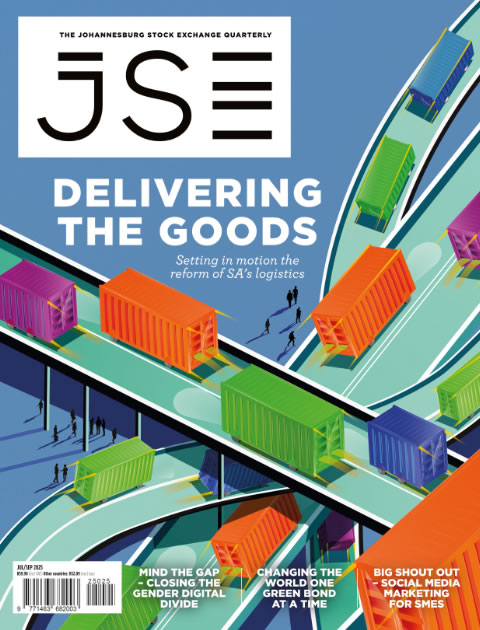In the past year, Rhodes Food Group has made six acquisitions, which is precisely why a listing on the JSE was motivated in October 2014. Bruce Henderson, group CEO, says that while the business growth strategy plan included acquisitions – and continues to do so – the listing really accelerated and sweetened its acquisition programme.
‘Although some of our acquisitions are considered small businesses, we believe them to be an excellent fit and aligned to what we do. Most importantly, there has to be the right synergies to our current portfolio before we consider these sort of bolt-ons.’ The latest two, Alibaba Foods Holdings (in November 2015) and the Foodservice operation business assets of General Mills South Africa (a month prior) enhance the already attractive food ranges that the group produces, namely canned foods, beverages and meal solutions – be that in fresh, frozen or long-life formats. Its stable also includes the flagship Rhodes label and iconic Bull Brand.
Rhodes Food Group has always concentrated on organic growth right from its early beginnings in Swaziland. Known then as Swaziland Fruit Canners, its family shareholders bought Rhodes Fruit Farms from Anglo American.
‘The investment into a South African base allowed the business to gather momentum, as expected,’ says Henderson who, two decades ago, was the Swaziland operations manager, then general manager and ultimately CEO.
‘Not much has really changed over the years. We pay lots of attention to our core business and its health, with acquisitions considered if these represent a good fit. Through the listing and being able to raise capital we have been somewhat more aggressive with acquisitions but our organic growth strategy has not been lost at all.’
There are five cornerstones to Rhodes Food Group’s growth strategy. First is to ensure a diversified food business, with a focus on value-added meal solutions. Then the group focuses on its market-leading brands, closely followed by a strong emphasis on building industry partnerships, including the production of select private-label ranges. And finally, there’s the continuous investment into the manufacturing facilities of the business.
‘We pay lots of attention to our core business and its health, with acquisitions considered if these represent a good fit’
Across SA and Swaziland, the group has 11 well-invested production facilities as well as two farms that produce dairy and pineapple. Predominately directed at the top-end retail market but also the wholesale and convenience sectors, one-third of all sales is exported outside of Africa, which in the current climate of a weak rand ‘provides a nice boost’, according to Henderson.
Sub-Saharan Africa is also an important market to the group, operating as it does in 14 of the region’s countries. ‘We are very active in selling and distributing into Africa. We do have experience in manufacturing in rural environments, which presents very particular challenges. In many cases we have to provide our own basic infrastructural services such as water supply and treatment and effluent disposal. But while we do have these competencies it does not necessarily mean we will jump into a business outside of our borders unless it is absolutely the right fit and we feel that we can add the right value.’
Value is certainly realised elsewhere, however. The group’s latest results reflect what Henderson considers a very pleasing performance for its first year in a listed environment amid a sluggish economy. ‘Our revenue was up by 23.7% to R3 billion with normalised operating profit up 31.8% to R311 million. Our profit after tax was up 106% to R170 million and normalised diluted headline earnings per share up 136% to 83.9c per share.’
Despite current challenges in the market (including a fluctuating currency and infrastructure challenges, which – as Henderson acknowledges – are not that much different from what any other industry currently faces), regional sales across all Rhodes Food Group’s core product categories increased by 32.5%, accounting for 70% of total turnover. ‘Such increases can be attributed to our focus on detail and our relative size, enabling us to be a more nimble business than some of our larger competitors,’ he says.
Rhodes Food Group employs some 1 400 permanent employees and has a strong directive in focusing its CSI initiatives on food. ‘We believe in paying attention to doing business in an appropriate way,’ says Henderson. ‘We therefore try to make a difference in the areas in which we operate by supporting initiatives that involve food supply and education. We are also involved in and support a number of food donation programmes, such as Meals on Wheels and other feeding schemes.’








